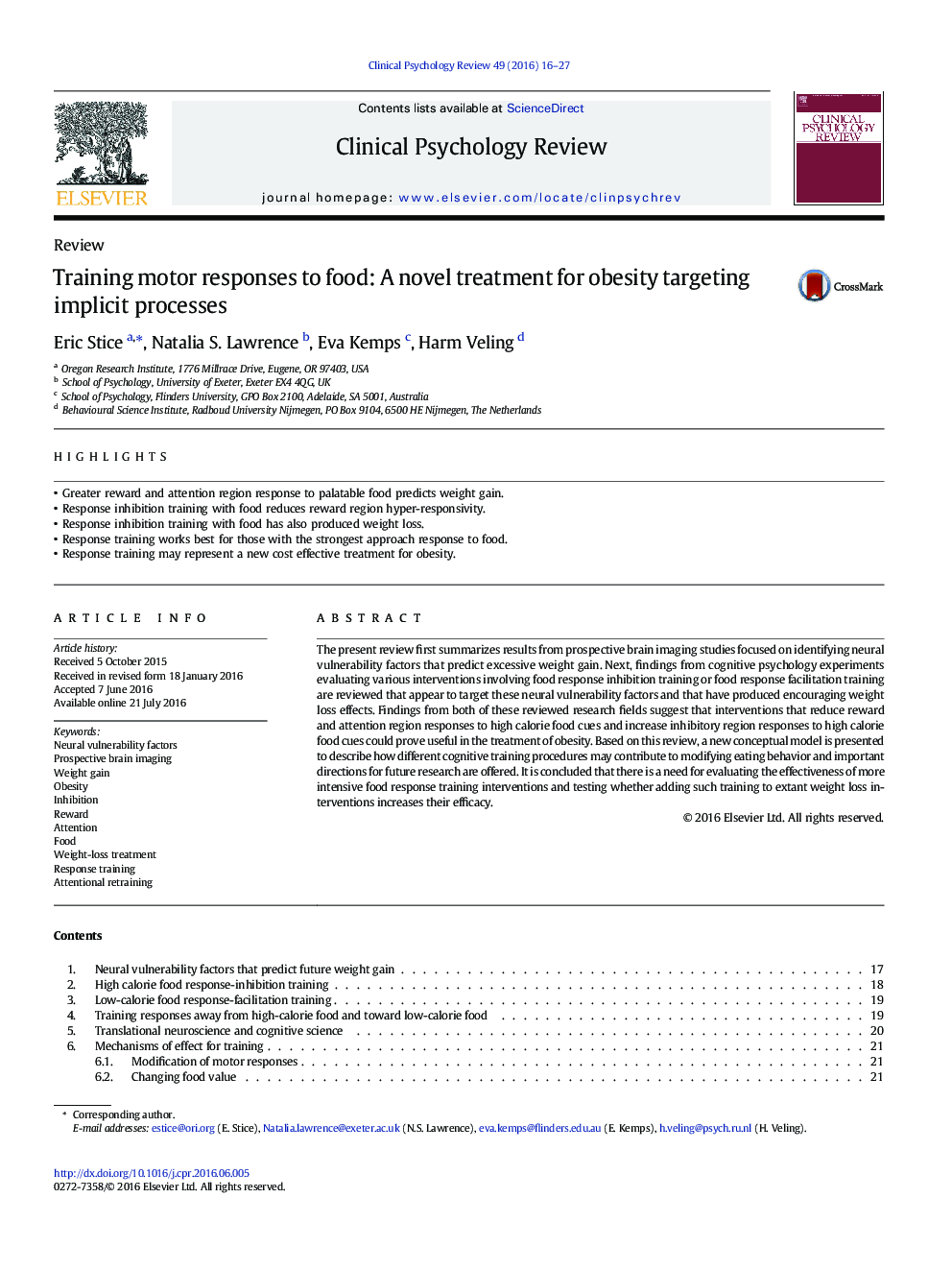| Article ID | Journal | Published Year | Pages | File Type |
|---|---|---|---|---|
| 903556 | Clinical Psychology Review | 2016 | 12 Pages |
•Greater reward and attention region response to palatable food predicts weight gain.•Response inhibition training with food reduces reward region hyper-responsivity.•Response inhibition training with food has also produced weight loss.•Response training works best for those with the strongest approach response to food.•Response training may represent a new cost effective treatment for obesity.
The present review first summarizes results from prospective brain imaging studies focused on identifying neural vulnerability factors that predict excessive weight gain. Next, findings from cognitive psychology experiments evaluating various interventions involving food response inhibition training or food response facilitation training are reviewed that appear to target these neural vulnerability factors and that have produced encouraging weight loss effects. Findings from both of these reviewed research fields suggest that interventions that reduce reward and attention region responses to high calorie food cues and increase inhibitory region responses to high calorie food cues could prove useful in the treatment of obesity. Based on this review, a new conceptual model is presented to describe how different cognitive training procedures may contribute to modifying eating behavior and important directions for future research are offered. It is concluded that there is a need for evaluating the effectiveness of more intensive food response training interventions and testing whether adding such training to extant weight loss interventions increases their efficacy.
